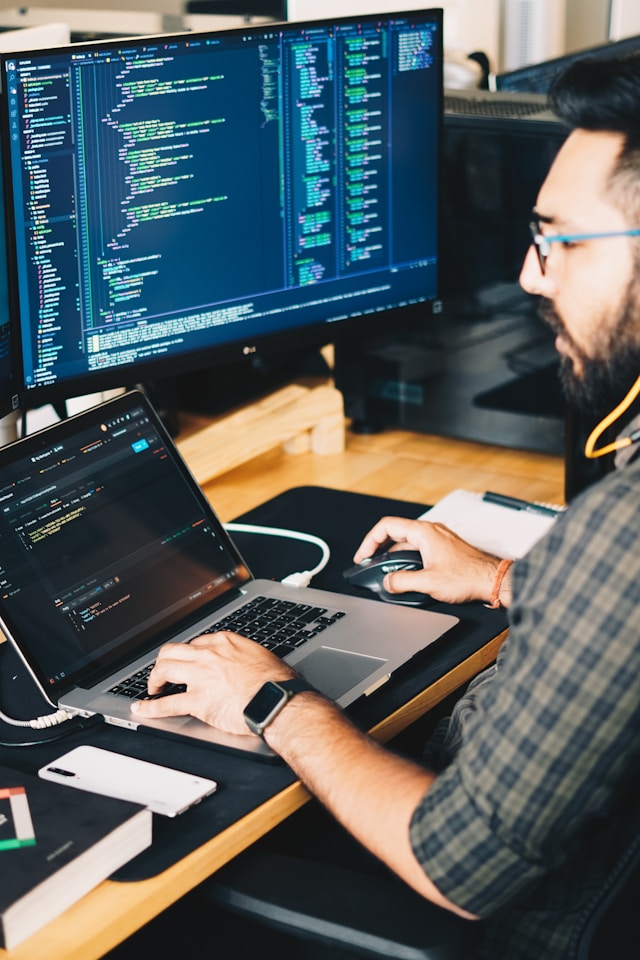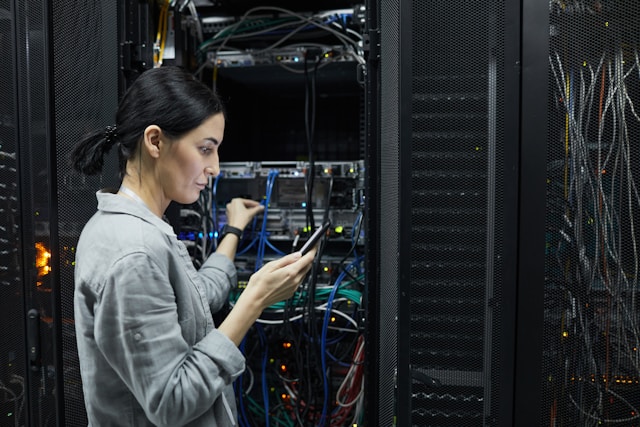
Table of Contents
Toggle1. Wearable Technology: Tracking and Improving Health
Overview: Wearable technology has become a cornerstone of personal health management, offering real-time data on various health metrics. These devices are designed to monitor and improve physical well-being through continuous tracking and personalized feedback.
Key Innovations:
- Fitness Trackers: Devices like Fitbit, Garmin, and Apple Watch track physical activity, heart rate, sleep patterns, and more. They provide users with actionable insights to enhance their fitness routines and overall health.
- Smartwatches: Advanced smartwatches integrate health monitoring features, including ECG (electrocardiogram) readings, blood oxygen levels, and stress tracking. They offer comprehensive health data and notifications for potential health issues.
- Health Patches: Wearable health patches, such as those developed by companies like VitalConnect, monitor physiological parameters like heart rate, respiration, and temperature. These patches are often used for remote patient monitoring and chronic disease management.
Impact: Wearable technology empowers individuals to take charge of their health by providing continuous feedback and encouraging healthier behaviors. It also aids in early detection of potential health issues, facilitating timely medical intervention.
2. Telemedicine: Accessing Healthcare from Home
Overview: Telemedicine has gained significant traction, especially during the COVID-19 pandemic, offering a convenient way to access healthcare services remotely. This technology enables patients to consult with healthcare providers without leaving their homes.
Key Innovations:
- Virtual Consultations: Platforms like Teladoc, Amwell, and Doctor on Demand allow patients to have video consultations with doctors, specialists, and therapists, making healthcare more accessible and efficient.
- Remote Monitoring: Telemedicine tools include remote monitoring devices that track vital signs and health metrics, sending data directly to healthcare providers for review and management.
- Online Prescriptions: Telemedicine services often include online prescription management, enabling patients to receive and manage prescriptions electronically without in-person visits.
Impact: Telemedicine improves access to healthcare, especially for individuals in remote or underserved areas. It also reduces the need for travel, saving time and resources for both patients and healthcare providers.
3. Health and Wellness Apps: Personalized Guidance and Support
Overview: Health and wellness apps offer personalized guidance and support across various aspects of well-being, from fitness and nutrition to mental health and sleep.
Key Innovations:
- Fitness Apps: Apps like MyFitnessPal, Strava, and Nike Training Club provide workout plans, nutrition tracking, and community support to help users achieve their fitness goals.
- Mental Health Apps: Applications such as Headspace, Calm, and BetterHelp offer meditation, stress management techniques, and virtual therapy sessions to support mental well-being.
- Sleep Tracking Apps: Apps like Sleep Cycle and Pzizz monitor sleep patterns, provide insights into sleep quality, and offer personalized recommendations for improving rest.
Impact: Health and wellness apps enhance personal well-being by offering tailored advice and support. They promote healthier habits, improve mental health, and contribute to better sleep, making it easier for individuals to achieve their health goals.
4. Nutrition and Hydration Technology: Smart Solutions for Better Eating
Overview: Advancements in technology are also impacting nutrition and hydration, providing innovative solutions to help individuals make healthier food choices and stay properly hydrated.
Key Innovations:
- Smart Scales: Devices like the Fitbit Aria and Withings Body+ provide detailed metrics on body composition, including weight, body fat percentage, and muscle mass, helping users track their nutritional progress.
- Nutrition Tracking Apps: Apps such as Yuka and Fooducate offer barcode scanning and food analysis to provide information on nutritional content and help users make healthier food choices.
- Hydration Reminders: Apps like MyWater and Hydro Coach send reminders to drink water and track daily hydration levels, ensuring users stay properly hydrated.
Impact: These technologies support better nutritional and hydration practices by providing valuable insights and reminders. They help individuals make informed choices about their diet and maintain optimal hydration, contributing to overall health and well-being.
5. AI and Data Analytics: Advanced Health Insights
Overview: Artificial intelligence (AI) and data analytics are transforming health management by providing advanced insights and personalized recommendations based on large datasets.
Key Innovations:
- Predictive Analytics: AI-powered tools analyze health data to predict potential health risks and recommend preventive measures. For example, IBM Watson Health uses AI to assist in diagnosing diseases and personalizing treatment plans.
- Personalized Health Recommendations: Platforms like Livongo use AI to offer personalized health recommendations based on individual data, such as blood glucose levels for diabetes management.
- Health Data Integration: AI and data analytics integrate health data from various sources, including wearables and electronic health records, to provide a comprehensive view of an individual’s health.
Impact: AI and data analytics enhance health management by offering predictive insights and personalized recommendations. They support proactive health measures and enable more precise and tailored healthcare interventions.
Conclusion
Tech innovations are significantly enhancing personal health and wellness, providing individuals with powerful tools to manage their well-being. Wearable technology, telemedicine, health and wellness apps, nutrition and hydration technology, and AI-driven analytics are all contributing to a more personalized and effective approach to health. By leveraging these advancements, individuals can take proactive steps towards better health, achieve their wellness goals, and enjoy a higher quality of life. As technology continues to evolve, the potential for further improvements in personal health and wellness remains vast and promising.






